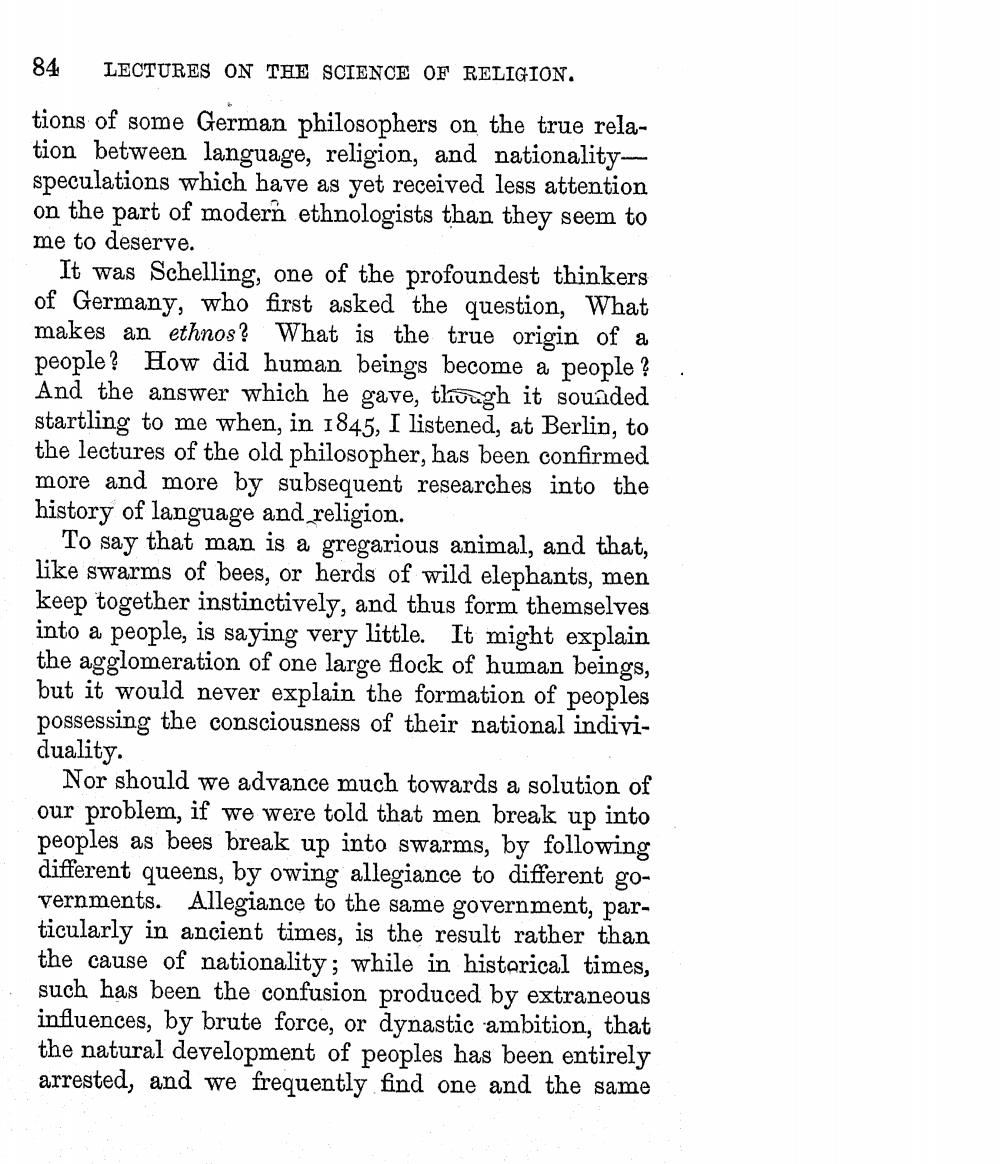________________
84 LECTURES ON THE SCIENCE OF RELIGION. tions of some German philosophers on the true relation between language, religion, and nationalityspeculations which have as yet received less attention on the part of modern ethnologists than they seem to me to deserve.
It was Schelling, one of the profoundest thinkers of Germany, who first asked the question, What makes an ethnos? What is the true origin of a people? How did human beings become a people ? And the answer which he gave, though it sounded startling to me when, in 1845, I listened, at Berlin, to the lectures of the old philosopher, has been confirmed more and more by subsequent researches into the history of language and religion.
To say that man is a gregarious animal, and that, like swarms of bees, or herds of wild elephants, men keep together instinctively, and thus form themselves into a people, is saying very little. It might explain the agglomeration of one large flock of human beings, but it would never explain the formation of peoples possessing the consciousness of their national individuality.
Nor should we advance much towards a solution of our problem, if we were told that men break up into peoples as bees break up into swarms, by following different queens, by owing allegiance to different governments. Allegiance to the same government, particularly in ancient times, is the result rather than the cause of nationality; while in historical times, such has been the confusion produced by extraneous influences, by brute force, or dynastic ambition, that the natural development of peoples has been entirely arrested, and we frequently find one and the same




